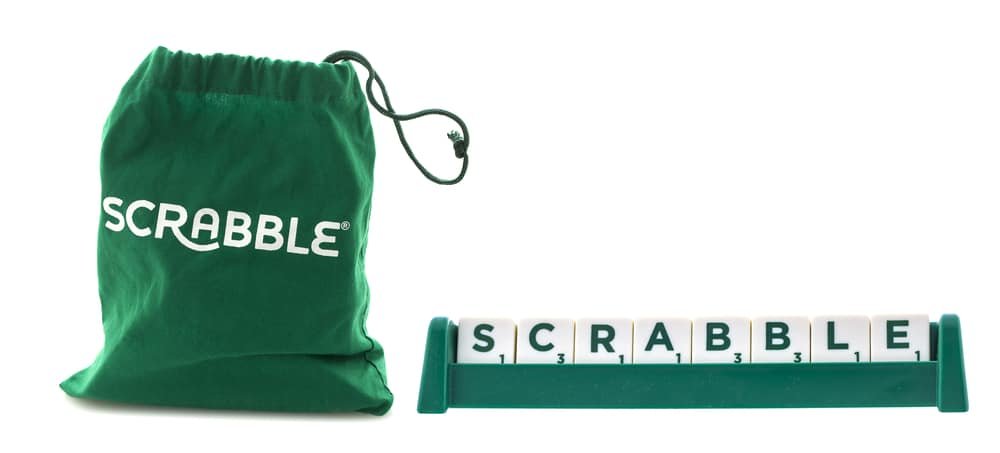Last Updated on January 7, 2024 by Gamesver Team and JC Franco

Puzzle me this one… what skills and traits are required to be good at Scrabble? Scrabble is a game that has stood the test of time, and those who are addicted to it have good reason to be. The game is thought-provoking, fun, and a great way to bond as a couple, group of friends, or family. Whether you are a novice or pro-Scrabble player, you might be interested in learning a bit more about what is required to boost your skills in the game.
There is no denying that scrabble is a game of both skill and strategy (and some luck). You need to be able to put your skills and traits to good use in a strategic way. The good news is that if you do not have these below-mentioned skills, the more you expose yourself to the game and actually get fully involved, the more these particular skills will develop within you. If you would like to learn about these skills and how they can improve your chances of being a Scrabble champion, read on.
14 skills and traits needed to be good at scrabble:
1. Creativity.
To come up with words from a string of letters, creativity is definitely required. One thing that is great about Scrabble is that creativity naturally improves, the more you play the game. As you are forced to think outside of the box and create words that are not obviously present on the board, a part of the brain that thinks more creatively is activated.
2. Quick Thinking Skills.

In order to be a strong Scrabble player, you need to be able to quickly recognize word building opportunities on the board. During the game, each player gets limited time to scrutinize the board, their tiles, and come up with a word. An hour-glass timer is typically included in each game set. The time limit applies pressure and gets the brain thinking quicker. The more a person is exposed to this, the quicker the brain will start to think.
3. Strong Vocabulary.
If you do not have much of a vocabulary, you will probably miss out on the opportunity to score points on making words on the board. While you can learn new words along the way during Scrabble games, it is beneficial for players to develop a vocab before they start playing. According to MentalFloss, there are 10 words you should learn that will increase your chances of winning at Scrabble.
4. Good Spelling Skills.
This one is quite obvious. If you are trying to create words on the scrabble board and you spell them wrong, you will not get the points and reduce your chances of winning. Pro Scrabble players have some of the biggest vocabs and most impressive spelling skills. How do you improve on your spelling skills? There are a few ways that you can improve on your spelling skills as follows:
- You can read as much as you can, whenever you can. The more your brain is exposed to words and how they are spelled, the more you will be able to recall on that information.
- You can take notice of words that you cannot spell and write them down a few times (practice).
- You can look up words you do not understand or hear for the first time in the dictionary and take special note of how they are spelled.
- You can write a daily journal or regular essays.

5. The Skill of Picking up on Opportunities Quickly.
You only have limited time to make your next move, so there is no time to deal with a lagging mind when playing a game of Scrabble. You need to be able to look at the board and spot a word opportunity as quickly as possible, and this can take a bit of practice. This might seem difficult at first, but the more you play the game, the easier it becomes, and the faster you will be able to pick up on opportunities.
6. Strong Decision-Making Skills.
You might wonder how decision-making skills fit in with a game of Scrabble, but they are actually quite important. Being indecisive might cost you the game. If you have a word to create, you have to be confident and act decisively.
7. Knowledge and Understanding of Prefixes and Suffixes.
Sometimes there are extra point-earning opportunities by adding prefixes and suffixes to words. You can only do this by knowing how prefixes and suffixes work and how to apply them.
8. Quick Learning Skills.
I have found that people who have the ability to learn quickly really do thrive at the game of Scrabble. Quick learning ability is a trait that most pro-Scrabble players have in common. If you do not consider yourself a quick learner, you can do a few things to help you develop those skills as follows:
- Truly engage in activities (pay attention). The more you are mindful about what you are doing without being distracted, the more you will be able to learn and remember.
- Stay organized and make notes (write down new words you learn in everyday life).
- Find a learning style that works for you (is it audio, video, or text?).
9. Good Emotional Control.
Experiencing frustration is common for newbies to the game of Scrabble. You cannot expect to be as good as those who have been playing it for many years. If you are new to the game (and even if you are a pro that is having a bad game), it is important to keep your emotions in check. Stressing out and have a frustrated outburst will only have you pegged as a poor sport, and people might avoid playing Scrabble with you in the future.

10. Strong Organizational Skills.
While Scrabble is a game of strategy, it requires a player to pay attention and have good organizational skills. Players have to ensure that their tiles are arranged in a way that makes sense and allows for words to easily jump out at them. The more organized a player can be, the easier forming words is.
11. Patience.
Sometimes it takes a few misses before a player can start to form valuable words and get ahead in the game. This can take patience, but if you can put your head in it and engage for the long term, you can truly position yourself in the lead in the game.
12. Anagramming Skills.
Anagramming is a highly useful skill when it comes to word games. What is it? If you have anagramming skills, you are able to form new words from rearranging the letters of existing words.
13. Mathematical Skills.
Playing Scrabble is mostly about forming words, but it does provide you with the perfect opportunity to practice your adding skills. As you form a word, certain points are attached. You need to be able to add these up quickly and effectively.
14. Strategic Thinking.
An interesting article published by Forbes paints a pretty clear picture of Scrabble being a strategy game based on spatial organization and involving a sound knowledge of spelling (and, of course, a vocab too). According to Forbes, playing scrabble can make you pick up on opportunities quickly, take action definitively, see risks differently, and think more strategically. You can read more in this article here.
Last Word
Scrabble can help individuals to become stronger in all of the above areas – which is great news to newbies of the game, isn’t it? If you have the opportunity to work on developing the above traits and skills while playing scrabble, you can truly boost your chances of winning more. Scrabble is not a game that everyone is just immediately great at. It takes a bit of time and effort, but as you progress and expose yourself to it, the easier it will become, and the more proficient your skills will become.

